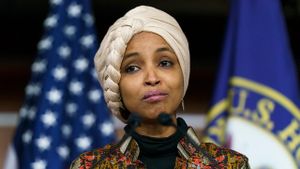Tax reforms impacting retiring business leaders are currently under discussion, raising significant concerns among various stakeholders about the future of fiscal policies affecting pensions and capital gains taxes. The French government is considering the possibility of eliminating the 10% tax deduction for pensions, which has been beneficial since its introduction.
The 10% tax abatement, created back in 1978, allows retirees to reduce the taxable portion of their pensions. According to the President of the Council for Retirement, "The removal of this advantage would bring between 3 and 4 billion euros annually to public finances." This reform aims to address the growing budget pressures caused by the aging population and the fragility of the pension system.
Prime debates include whether such measures should target all retirees or focus on wealthier individuals. The impact of the proposed reforms differs significantly based on the income level of retirees. For modest retirees, many of whom are already exempt from taxes, the change may not have as much effect. Conversely, the middle class could see their tax bills increase by hundreds of euros each year. "Wealthier retirees could see their taxes rise by over 1,000 euros annually," noted reports from Les Echos.
At the same time, there are concerns about the treatment of business leaders exiting their roles. The law governing tax charges on capital gains was recently reviewed, prompting the extension of the 500,000-euro exemption for retiring business leaders. This recent law became possible with the adoption of the 2025 finance legislation, spotlighting the government’s willingness to support small and medium-sized enterprise (SME) leaders during their transitions.
This loyalty to business leaders stands juxtaposed against the potential adjustments for regular retirees and raises questions surrounding fairness and equity within the tax system. Various viewpoints highlight the complexity of the situation—while some advocate for equitable reforms, others fear the unintended consequences of targeting the wealthy.
Further discussions are likely to continue as the government grapples with balancing budgets and citizens' financial stability. Proposals include keeping lower-income retirees insulated from tax increases, whilst adjusting contributions from higher earners. Yet, addressing such disparities is increasingly challenging amid rising economic pressures.
One of the main proposals is to either eliminate the tax deduction entirely, impacting all retirees, or to pursue more nuanced reforms aimed solely at the affluent sectors. The urgency for such discussions can’t be overstated, as many senior citizens rely on stable fiscal support during retirement.
Economists are split on whether these tax adjustments will yield long-term benefits for the economy or merely place additional stress on retirees already facing fixed incomes. The debate over the best approach to navigate these reforms continues to evolve.
Conclusively, the immediate future of tax policy for retiring business leaders and retirees alike reflects broader societal challenges. Adjustments to the current laws will have lasting repercussions for the financial security of future generations.



